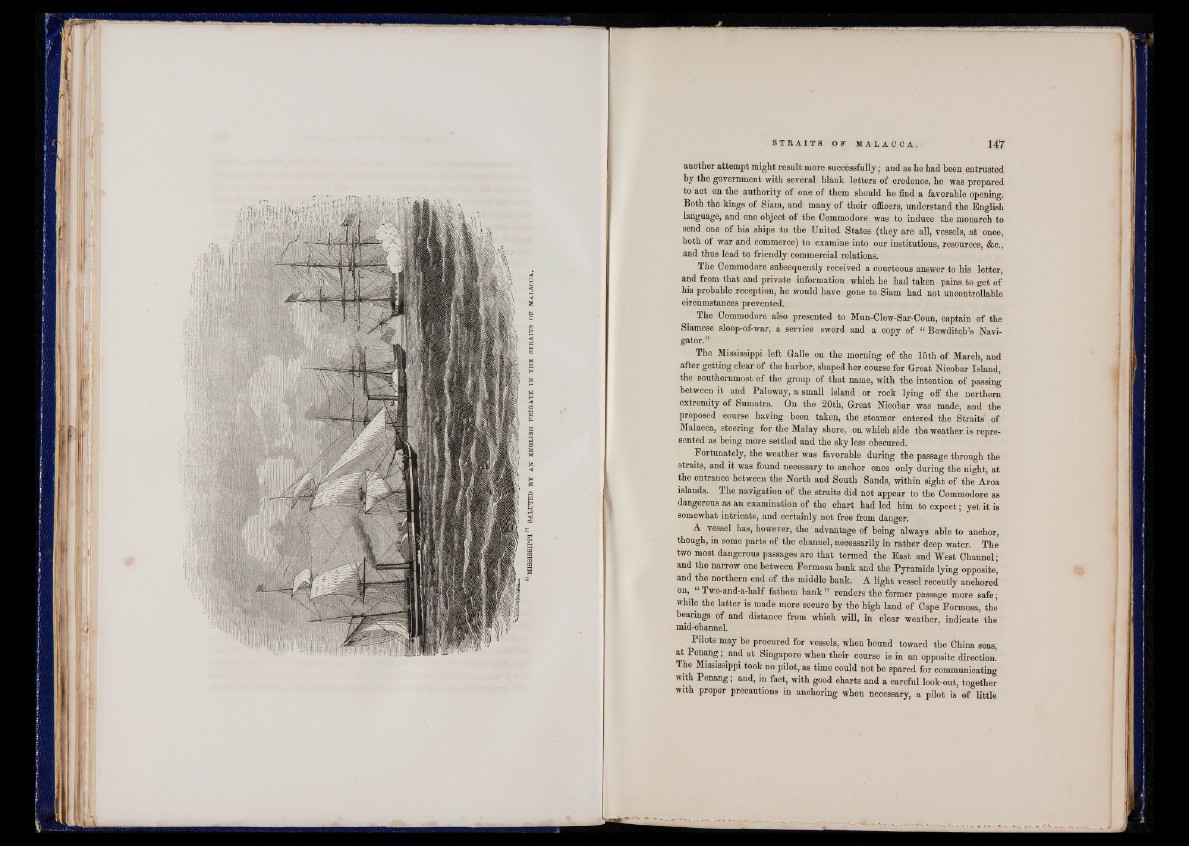
■‘Mississippi” saluted by an English feigate in the steaits of malaooa.
S T R A I T S OF M A L A C C A . 147
another attempt might result more successfully ; and as he had been entrusted
hy the government with several blank letters of credence, he was prepared
to act on the authority of one of them should he find a favorable opening.
Both the kings of Siam, and many of their officers, understand the English
language, and one object of the Commodore was to induce the monarch to
send one of his ships to the United States (they are all, vessels, at once,
both of war and commerce) to examine into our institutions, resources, &c.,
and thus lead to friendly commercial relations.
The Commodore subsequently received a courteous answer to his letter,
and from that and private information which he had taken pains to get of
his probable reception, he would have gone to Siam had not uncontrollable
circumstances prevented.
The Commodore also presented to Mun-Clow-Sar-Coun, captain of the
Siamese sloop-of-war, a service sword and a copy of “ Bowditqh’s Navigator.”
The Mississippi left Galle on the morning of the 15th of March, and
after getting clear of the harbor, shaped her course for Great Nicobar Island,
the southernmost of the group of that name, with the intention of passing
between it and Paloway, a small island or rock lying off the northern
extremity of Sumatra. On the 20th, Great Nicobar was made, and the
proposed course having been taken, the steamer entered the Straits of
Malacca, steering for the Malay shore, on which side the weather is represented
as being more settled and the sky less obscured.
Fortunately, the weather was favorable during the passage through the
straits, and it was found necessary to anchor once only during the night, at
the entrance between the North and South Sands, within sight of the Aroa
islands. The navigation of the straits did not appear to the Commodore as
dangerous as an examination of the chart had led him to expect ; yet it is
somewhat intricate, and certainly not free from danger.
A vessel has, however, the advantage of being always able to anchor,
though, in some parts of the channel, necessarily in rather deep water. The
two most dangerous passages are that termed the East and West Channel ;
and the narrow one between Formosa bank and the Pyramids lying opposite,
and the northern end of the middle bank. A light vessel recently anchored
on, Two-and-a-half fathom bank ” renders the former passage more safe ;
while the latter is made more secure by the high land of Cape Formosa, thè
bearings of and distance from which will, in clear weather, indicate the
mid-channel.
Pilots may be procured for vessels, when bound toward the China seas,
at Penang ; and at Singapore when them course is in an opposite direction!
The Mississippi took no pilot, as time could not be spared for communicating
with Penang ; and, in fact, with good charts and a careful look-out, together
with proper precautions in anchoring when necessary, a pilot is of little